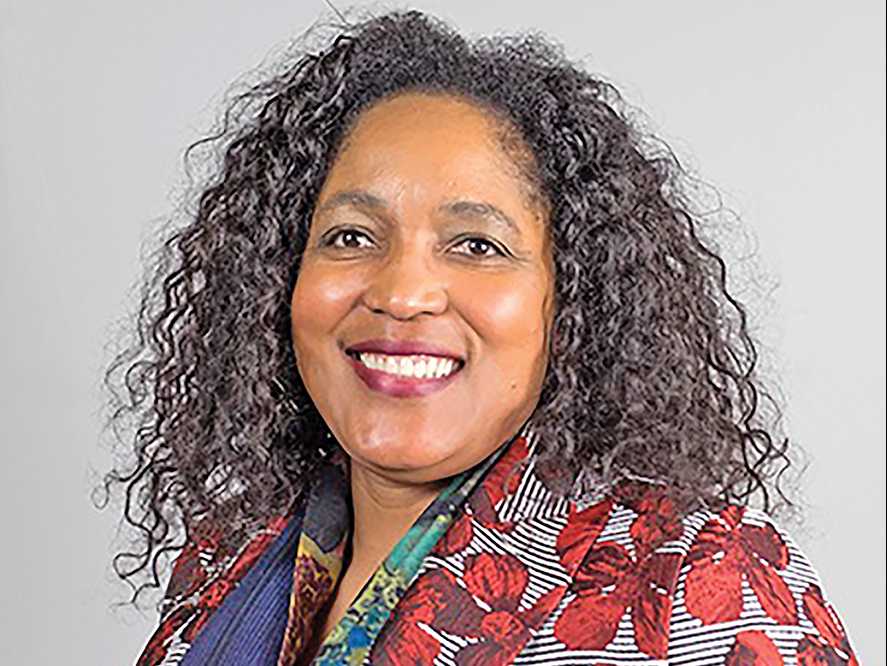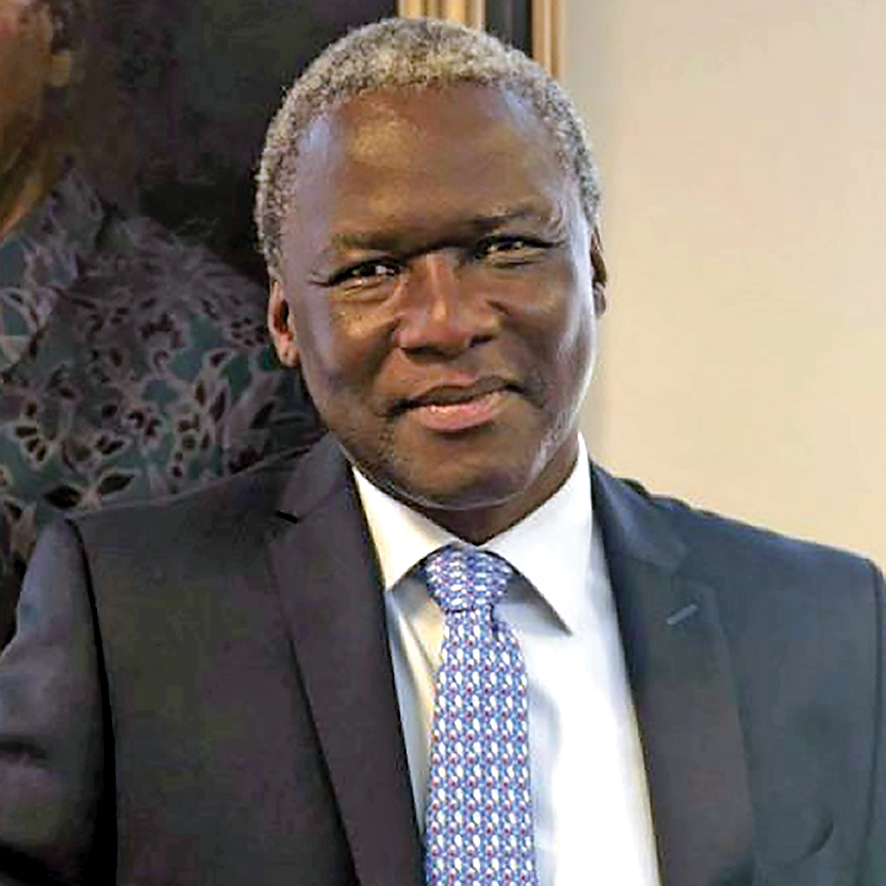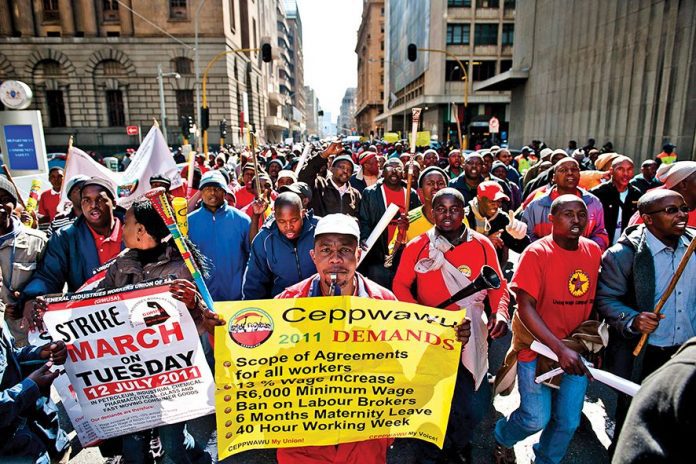Johannesburg – Greed. Lavish spending. Betrayal of workers’ trust.
This is how we can best describe the conduct of elected leaders of the Chemical, Energy, Paper, Printing, Wood and Allied Workers Union (Ceppwawu), an affiliate of union federation Cosatu.
This as evidence emerges of how the union fat cats mismanaged workers’ funds entrusted to them, leaving workers R8-billion poorer in just two years.
An explosive report prepared by Ceppwawu’s administrator Thulisile Mashanda paints a bleak picture of the financial books of the beleaguered union, which has been rocked by corruption and mismanagement of massive proportions.
Mashanda was appointed administrator of Ceppwawu by the Labour Court in June 2020 following years of contraventions of regulations governing the functioning of trade unions.
At the heart of the court’s decision was the union’s failure to provide audited financial statements for the financial years ending 2014, 2015, 2016 and 2017.
Evidence seen by Sunday World explains why the union leaders consistently failed to submit audited financial statements as required by law.
According to audited financial statements of Ceppwawu Investments (CI), the entity’s assets under management plunged from R10.1-billion in 2015 to R1.7-billion to 2019, during which period the union’s leaders were spending money like drunken sailors.
Tragically, Mashanda found that 20 years after the establishment of Ceppwawu Development Trust (CDT), which wholly owns CI, it has not met its objectives of benefiting the union’s members. “CI has earned close to over half a billion rand.

However, it failed to pass the earnings to the beneficiaries,” Mashanda states in the report.
“CI paid for the management of its assets, yet when some of the listed share prices were going down, there was no action taken by those entrusted with such responsibilities.”
The CI has three directors: business tycoon Isaac Shongwe, controversial former Ceppwawu general general Simon Mofokeng, and Rapule Tsotetsi.
Mofokeng was dismissed by the union in 2017 after failing to appear for disciplinary hearings. Curiously, he remains a CI board member.
Mashanda has approached the court to have the trio removed from the CI board.
She also wants the dormant CDT to be revived so that benefits can flow to union members. CI is opposing the application.
The CDT, Mashanda has found, has been dysfunctional since 2011, the year it last had a quorated meeting.
CI holds significant stakes in Aspen, Nampak and several other companies.
“Business unionism” has led to many fractures in the labour movements as factions vie for control of trade unions, precisely to control their investment arms, which are flush with money.
Cosatu spokesperson Sizwe Pamla told Sunday World that Cosatu’s central executive committee established a task team a while back to look into the affairs of the identified unions that faced such challenges, including Ceppwawu.
“We are aware of the issues facing the union and the work of the task team continues,” he said.
Former labour registrar Johan Crouse, who unsuccessfully tried to put Ceppwawu under administration as early as 2014, said he is not surprised by allegations that its books are a mess.
“If the union had no money, it would have been easy to cancel the registration of the union, but the investment arm kept the union afloat by bailing the union out of trouble annually for a number of years.
A further concern that I had was that the union did not reflect its investment company in its financial statements in any shape or form. So the members were not even aware of this asset that they had,” he said.
Ceppwawu general secretary Welile Nolingo labelled Mashanda a liar when asked about allegations that he had spent R1.6-million on travelling and accommodation in 2018.
“Thuli is lying if she says that R1.6-million was only spent on me alone.
In 2018, I was travelling from my hometown of Port Elizabeth to East London where the conference was held.
I was also put in hotels or rental accommodation by the union, and this was also the case for other office bearers such as our deputy secretary-general, including the president and others, Nolingo said.
“The union has its own policy to cater for us as office bearers to hotels and also deal with our traveling costs as we live in different areas and provinces.
“Thuli should not come here and lie, she must show you invoices,” he added.
How officials wasted workers’ funds:
Ceppwawu administrator Thulisile Mashanda has in her report detailed instances where the union’s officials showed disregard for workers’ money.
• In 2018, Ceppwawu’s national office bearers spent R1.6-million on expensive and luxurious hotel accommodation, plus a further R338 741 in travelling costs.
• In the same year, union deputy general secretary Musa Bhengu spent R21-million on legal fees, R15-million of which was spent in a legal battle with the union’s former general secretary Simon Mofokeng. The funds were obtained through a CI loan.
• Mofokeng was implicated in a bizarre transaction that left a big hole on the union’s coffers. Mashanda found that in 2015, Mofokeng decided to change a photocopy contract – years before it was set to expire. The contractor sued the union for R13-million but the matter was settled for R5-million.
• In another startling case of abuse of workers funds, in 2017 Ceppwawu’s then deputy secretary-general Samuel Seatholo allegedly paid R3.9-million to a legal firm for work not done. “When asked, he said he did not know that the work was not performed,” Mashanda reveals in court papers.
• The administrator further found that in 2014, the KwaZulu-Natal regional secretary entered into a legal agreement without the required delegation of authority.
This led to the union being sued and settling the matter to the tune of R3.2-million. Strangely, the secretariat report delivered at the union’s conference in 2018 warned union officials of misusing workers’ funds.
“This conduct [of entering into contracts without delegation of authority] by regional structures creates an environment where leaders procure services from service providers that are uncomfortably close to them, thereby setting the scene for corruption and maladministration.”
• Mashanda has recommended that a forensic investigation be undertaken to understand why the CDT has failed to operate to date.
• She also wants a forensic investigation to be launched into the affairs of CI.
• Mashanda also recommends that only professional and operational staff should be in charge of running the business wing of the union.
Letsema Consulting failed the workers, says administrator
Chemical, Energy, Paper, Printing, Wood and Allied Workers Union (Ceppwawu) administrator Thulisile Mashanda has accused Letsema Consulting of not acting in the best interest of workers when it was managing the affairs of the union’s investment wing.
Mashanda further charged that Letsema invested and sold the Ceppwawu Investment (CI) funds without authority as the right body to give it such mandates, Ceppwawu Development Trust (CDT), did not quorate for over a decade. Letsema and the union partnered in April 2000 to establish CI.
The agreement went through several alterations throughout the years.
The first contract saw Letsema take a 20% equity participation stake in the joint venture. According to Letsema’s chairperson Isaac Shongwe, the company set about sourcing investments for CI while the union “was unable to contribute towards the costs it had agreed to pay, and in October 2001 an addendum was signed whereby Letsema would carry all these costs and its equity stake would be increased to 30%”.

Subsequently, in 2007, the parties agreed the stake would decrease to 27.5%. One of the first transactions Letsema and CI entered was buying a significant stake in Aspen Pharmacare.
According to a report prepared by Mashanda, Letsema had benefited to the tune of more than R500-million from the deal. Shongwe acknowledged the union went through a troubled period from about 2009 to 2017, which caused CI’s shareholder, CDT, to become inquorate due to the union’s inability to appoint its three trustees.
“The appointed administrator Ms TN Mashanda tried to get herself and two of her team members appointed as the only trustees “Mashanda tried to grab sole control of CI by purporting to summarily dismiss its directors and appoint herself as the sole director.
Ms Mashanda was interdicted by the Pretoria High Court from doing so. This interdict is still in place and has not been appealed,” he said.
Mashanda denied the allegation, saying the matter was before the Supreme Court of Appeal. Shongwe conceded that CI’s assets plunging from R10.1-billion in 2015 to R3.2-billion in 2017 but denied recklessness. The following year CI’s asset base plunged to R1.7-billion.
“Of the R10-billion reflected in CI’s financials of February 2015, R8.8-billion was consolidated from an associate company in which CI only owned 52%, although 100% of its value was included in CI’s financials, which CI was obliged to consolidate because it was the majority shareholder. When that structure was unwound, the 48% which never belonged to CI was no longer reflected.”
Ceppwawu general secretary Welile Nolingo blamed all the troubles happening at CI on his predecessor, Simon Mofokeng, and said he had caused all the problems.
Mofokeng declined to comment.
For more business news from Sunday World, click here.
Follow @SundayWorldZA on Twitter and @sundayworldza on Instagram, or like our Facebook Page, Sunday World, by clicking here for the latest breaking news in South Africa. To Subscribe to Sunday World, click here.
Sunday World



